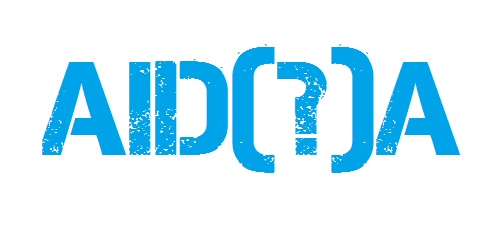I’ve been an anarchist (to varying degrees) since my failed attempt to become student body president in 8th grade.
True story: after my nomination was rejected, a small group of my friends agreed to help me take over the school. Overthrow the faculty and everything. Maybe we’d watched too much professional wrestling, because the NWO “hostile takeover” of WCW was fresh in our minds, but for some crazy reason, we thought we could pull it off.
Our coup d’état was stopped by forces beyond our control. President Clinton declared the entire city a disaster area after downtown was flooded by the swollen Red River, just a matter of days before we enacted the plan.
I can neither confirm nor deny that I was placed on an FBI watch list for my activities in 1997.
In reality, I was more of a rebel than a true anarchist, in those days. Yes, there’s a difference. A rebel or revolutionary fights against the “powers that be” with hopes of replacing them with powers he likes better.
An anarchist wants to remove those powers and replace them with…freedom.
Embracing Anarchy as a Blogger
The word anarchy literally means “without ruler.” I like this definition of anarchy from Vernard Eller:
“’Anarchy’ … is simply the state of being unimpressed with, disinterested in, skeptical of, nonchalant toward, and uninfluenced by the highfalutin claims of any and all arkys (powers).”
For bloggers (or would-be bloggers), this should be a liberating concept.
There are no kings before whom you must bow in the blogosphere. Even if there were, you’re not obligated to bow in their presence or follow their rules.
That’s one of the things we love about the internet – blogging in particular: Freedom!
But so often, we find ourselves tied up…restricted by some imaginary rule. Or squeezed into a mold that someone else designed.
The truth is, we’re doing it to ourselves. Knowing the truth shall make you free.
This call to anarchy is a call to freedom.
What does that mean for you, specifically?
Even though there are no kings here, the blogosphere is full of “arkys” (to use Eller’s word) trying to govern our thinking and shape our behavior.
If you did a search for “rules of blogging,” Google will give you over 55 million results. Bing gives twice as many. There have been tens of millions of attempts to tell you how you should blog.
How do we deal with that?
Well, as your brother in anarchy, I won’t try to tell you what to do. But if you don’t mind, I’ll share some observations with you and maybe that will shed some light on the situation.
In short, becoming an anarchist is a declaration of independence – even from the advice I’m about to offer.
De-throne every form of fear
Fear may be the Number One provider of blog abortions. And if it doesn’t stop blogs from being born, it often keeps bloggers from making them all that they could be. It smashes brilliant ideas before they ever hit the page.
Fear only has as much power over you as you give it. So refuse to give it any.
That doesn’t mean that fear just goes away without a fight. Arkys never do. Your decision to ignore fear doesn’t mean it won’t scrape and claw to maintain its hold over you. Fear will strike. You’ll be nervous to express your ideas sometimes, if not every time. You’ll feel trepidation as you move the mouse to click Publish.
Blog anarchists recognize fear’s strength but refuse to allow it to paralyze them or determine their decisions.
Feel the fear and keep moving forward.
Although the battle is never truly over, freedom from fear enables you to…
Celebrate your creativity
“You write to communicate to the hearts and minds of others what’s burning inside you.” – Arthur Polotnik
It’s important to know what you want to accomplish with your blog; what is your overarching theme? Who are you writing for? Will you position yourself as a friend, a teacher, a whistleblower?
The beauty of building your own blog is that you can say whatever you want, however you want (as long as you don’t break any laws outside the blogging universe):
Your subjects.
Your style.
Your format.
Don’t care for the rules of proper grammar? Throw ‘em out the window. (That usually makes you a better blogger/writer, anyway.)
Leaders, Not Rulers
Seth Godin writes on his blog every day.
Matt Loomis blogs somewhat randomly.
Lamar Tyler, for all intents and purposes, doesn’t blog at all.
Some of Ramit Sethi’s blog posts are over 3,000 words. The last Jeff Goins post I read was barely 300.
Who’s doing it right? Who has the right formula?
I don’t have to answer that for you.
They do what’s best for themselves and their audiences. They have the freedom to do that.
As outstanding as these writers are, they don’t define what good blogging is, no matter how many fanboys you come across proclaiming “Seth’s way is the best way.” (I haven’t heard any of these guys make that claim for themselves.)
You don’t have to fit into anybody’s box.
Great bloggers don’t impose authority on their readers; they inspire admiration. And, hopefully, action. Rather than push you into a specific way of doing things, they pull you forward into your own unique greatness.
Can I be honest about something? Sometimes the great ones are so good at what they do, lesser mortals like me can feel intimidated. Ever read a post that was so good that it made you want to quit?
Maybe that’s just me. I’ve felt as if I’d never reach the level of skill required to write that well and momentarily felt inadequate. It happens from time to time.
If you’re passionate about your craft and honest about your own skills, you may have similar experiences. Be encouraged; moments like these illustrate how much you care about growing and improving. Try to flip that intimidation back into inspiration and press on.
Throw Off the Chains
“Elephants can pull over 1,000 pounds with ease and yet a 10-pound chain will cripple them. Elephants have for centuries been contained by humans simply by placing a chain around their ankle… there is a conditioned response that if a chain is around their ankle, it cannot move…” ~ Brett Faris
Did you know that you and I have this same conditioned response built into our brains?
Growing up, we’re taught to follow rules, no matter how arbitrary. To give the “right answers” instead of expressing ourselves.
It doesn’t end when we get out of school. Most of us carry this conditioning into every part of our lives.
(Funny thing: the great leaders we learn about in history class, the pioneers who fill the physics books, the geniuses who advanced math beyond counting fingers and toes – they were basically all rule-breakers. Paradigm-shatters.)
Bloggers need to throw off every chain the keeps us from being great. Or how will we make it into our children’s history books?
Today is the day. Declare your independence – from “rules”…from fear…from the need for external validation…from the need to emulate one of the big names in the blogging world.
Today and forevermore, let us live by our own rules. Let us be fully ourselves. Let us be anarchists.
P.S. What other blogging “rules” do we need to unchain ourselves from? Please share your thoughts in the comments section.




